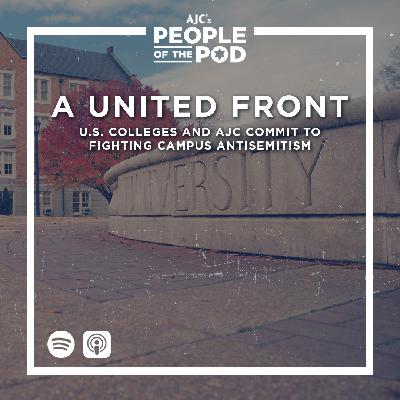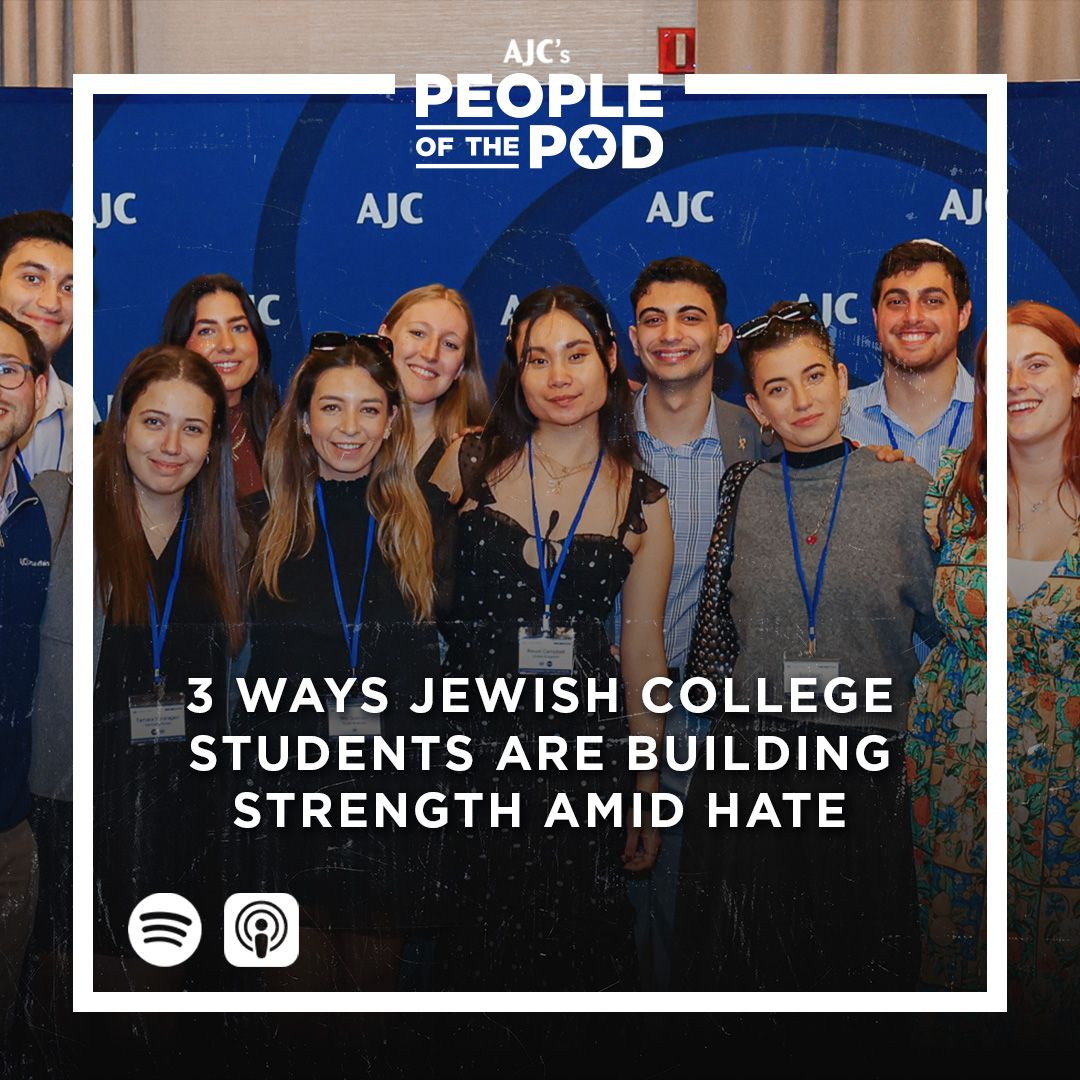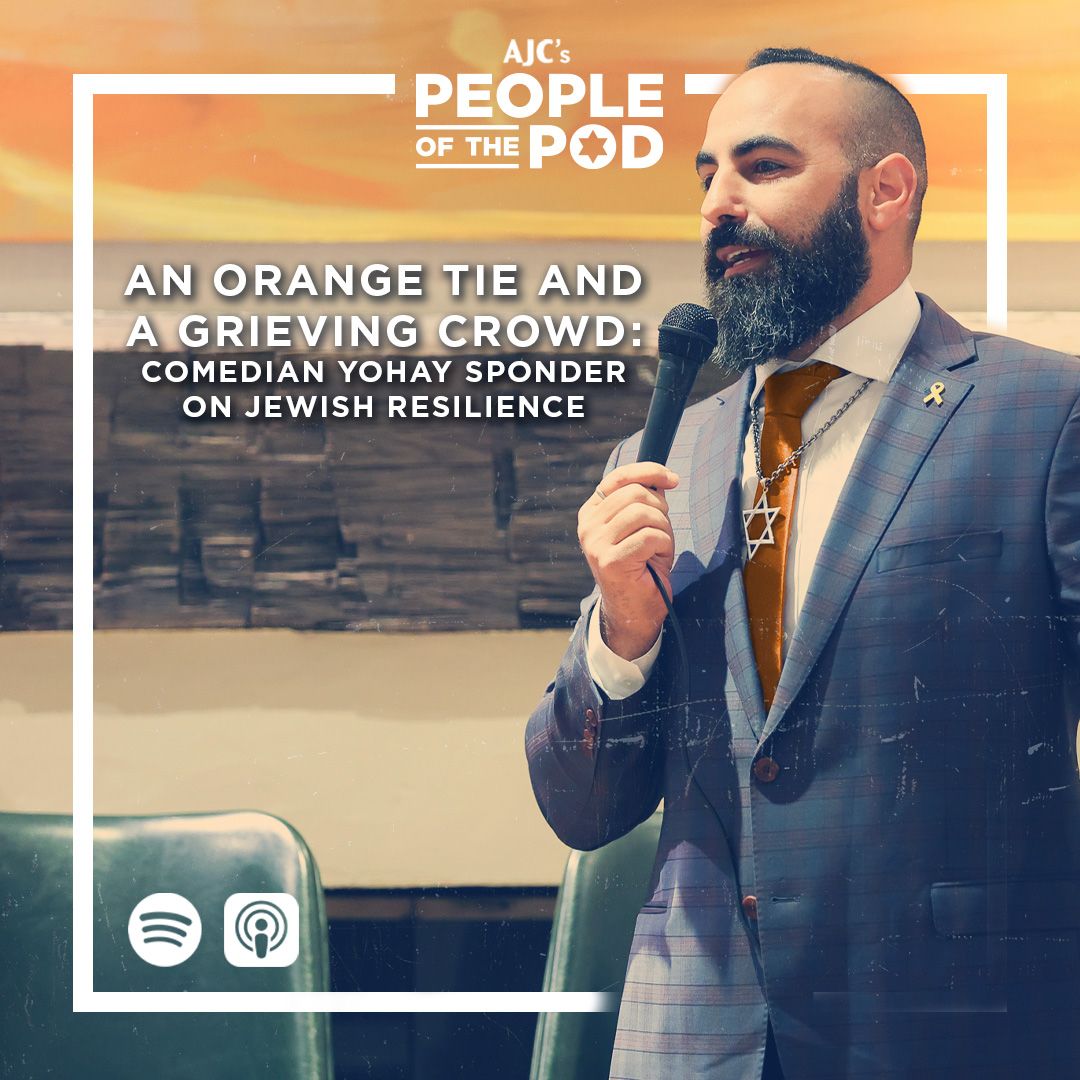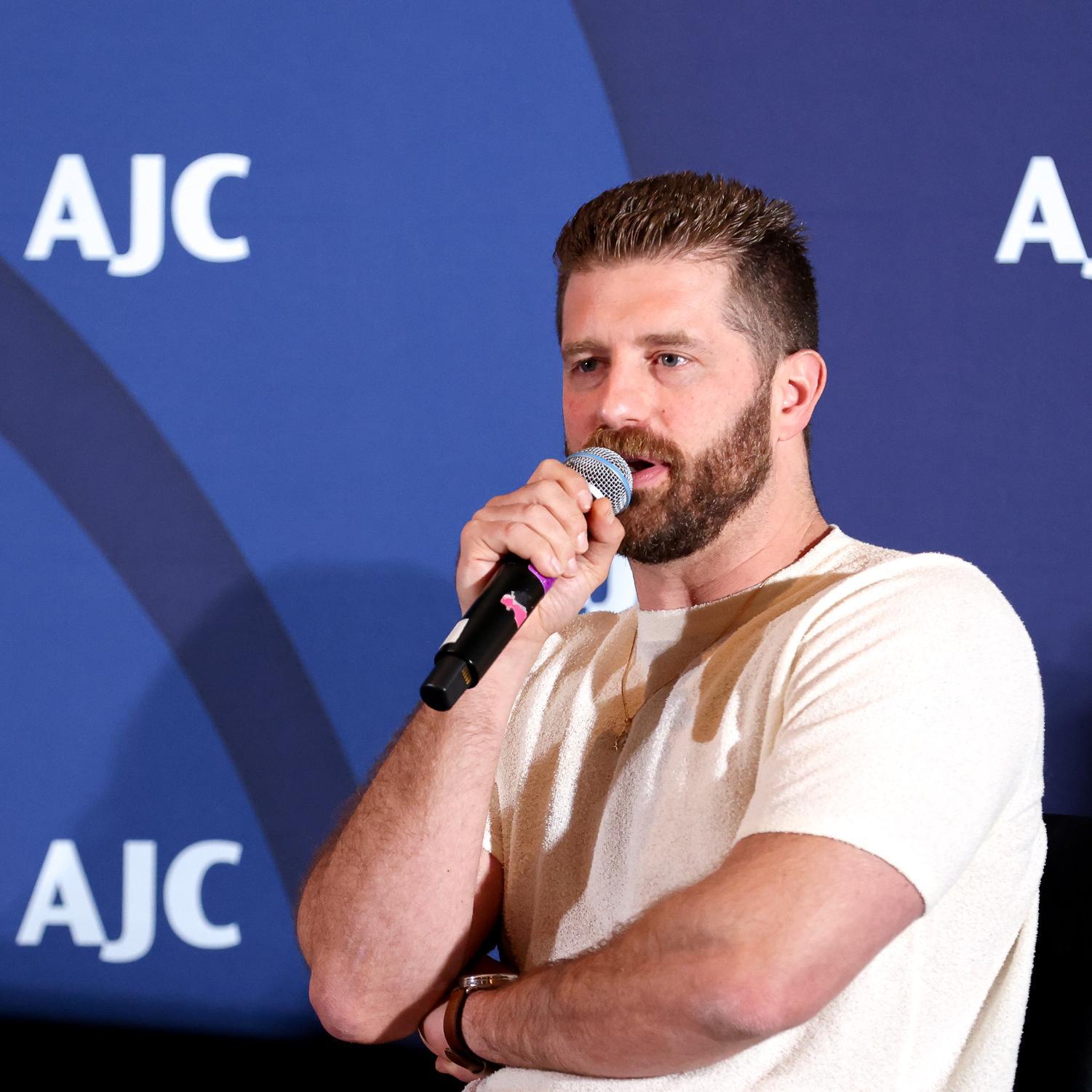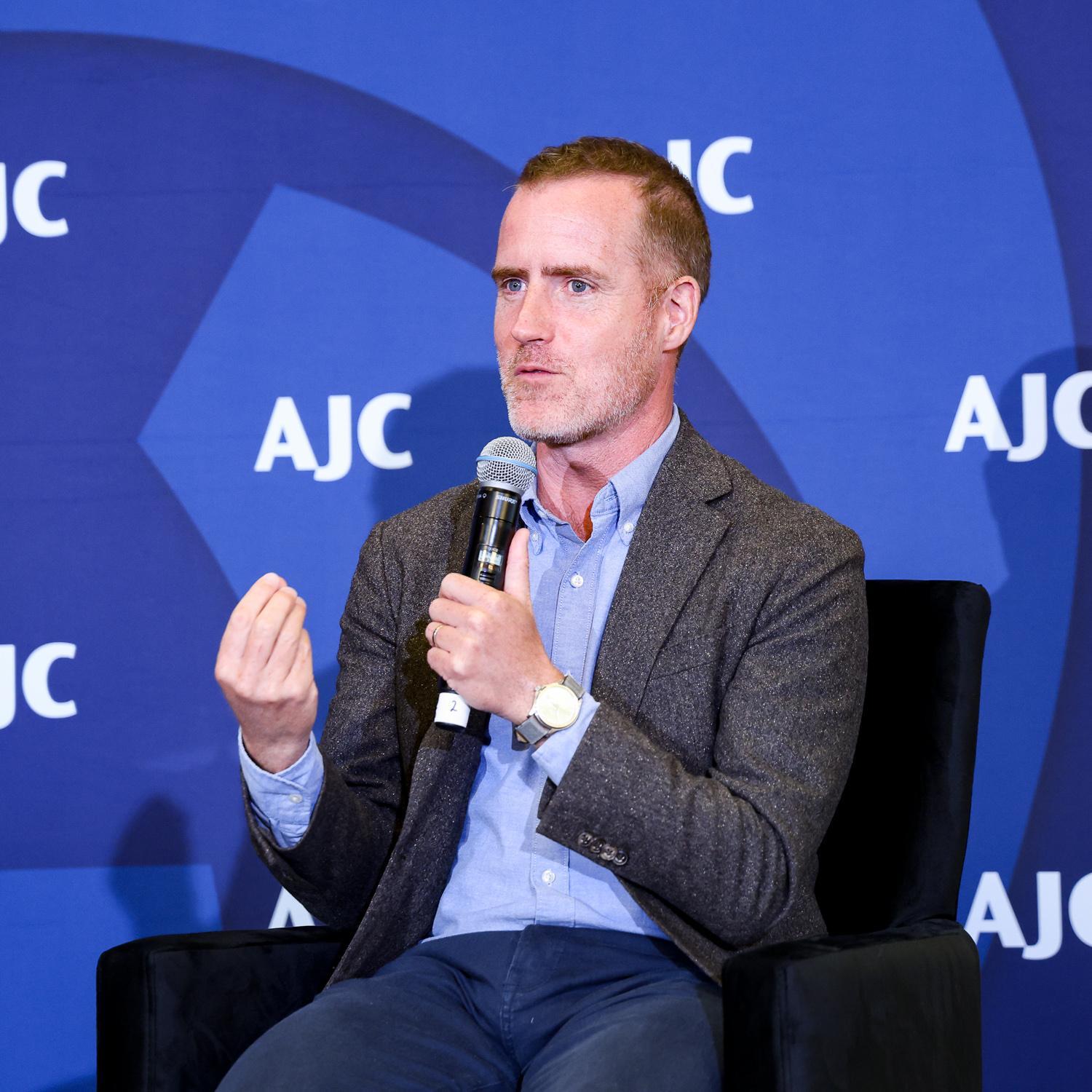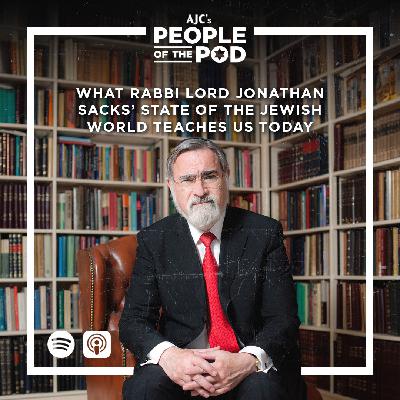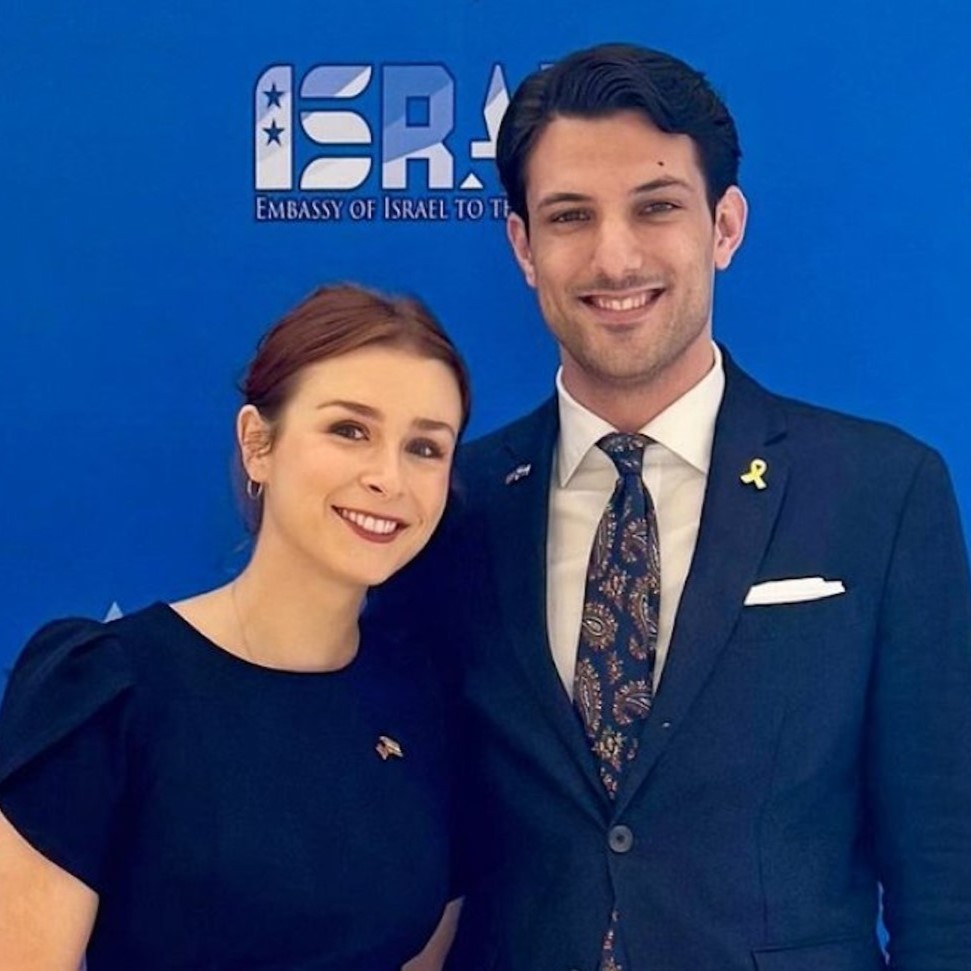A United Front: U.S. Colleges and AJC Commit to Fighting Campus Antisemitism
Description
This week, groups representing more than 1,600 colleges and universities pledged reforms to fight campus antisemitism—a major breakthrough in the effort to end anti-Jewish hatred and create campuses where Jewish students feel safe. In collaboration with American Jewish Committee (AJC), the groups urged the Trump administration to continue making the eradication of antisemitism a priority, but without endangering the research grants, academic freedom and institutional autonomy of America's colleges and universities. Here to discuss this collaboration are Sara Coodin, Director of Academic Affairs for AJC, and Ted Mitchell, president of the American Council on Education.
*The views and opinions expressed by guests do not necessarily reflect the views or position of AJC.
Resources:
Watch – Creating Safe Spaces for Jewish Students: Education Leaders Speak at AJC Global Forum 2025
Listen – AJC Podcasts:
- Most Recent Episodes:
- Related Episodes:
- The Forgotten Exodus: Untold stories of Jews who left or were driven from Arab nations and Iran
- People of the Pod
Follow People of the Pod on your favorite podcast app, and learn more at AJC.org/PeopleofthePod
You can reach us at: peopleofthepod@ajc.org
If you’ve appreciated this episode, please be sure to tell your friends, and rate and review us on Apple Podcasts or Spotify.
Transcript of Conversation with Ted Mitchell and Sara Coodin:
Manya Brachear Pashman:
This week, groups representing more than 1,600 colleges and universities pledged reforms to fight campus antisemitism -- a major breakthrough in the effort to end anti-Jewish hatred and create campuses where Jewish students feel safe. In collaboration with American Jewish Committee, the groups urged the Trump administration to continue making the eradication of antisemitism a priority, but without endangering the research grants, academic freedom and institutional autonomy of America's colleges and universities.
Here to discuss this collaboration is Sara Coodin, Director of Academic Affairs for AJC and Ted Mitchell, president of the American Council on Education. Ted, Sara, welcome to People of the Pod.
Ted Mitchell:
Thanks, Manya, good to be here.
Manya Brachear Pashman:
So Ted, if you could please give our listeners an overview of who signed on to this. Who are the six organizations, and do they encompass all of the higher ed institutions in the country?
Ted Mitchell:
We represent everybody. And so it's everybody, from the Community College Association to the land grant universities, to AAU, the big research universities, the state colleges and universities, and then ACE is an umbrella organization for everybody. So we've got built in suspenders, and we've got every institution in America on the side of eliminating antisemitism.
Manya Brachear Pashman:
And then, I guess, the next question is, why? I mean, why was it necessary for American Council on Education and these other associations to join this effort?
Ted Mitchell:
Well, a couple, a couple of things. I mean, first of all, we have partnered. AJC and Ace have partnered for a number of years to identify and try to address issues of antisemitism. So feel like we've been in partnership for some time on these issues. And unfortunately, the need has continued to grow. I think that last spring was a real wake up call to a lot of our institutions, that they might have been comfortable believing that there was no antisemitism on their campus, but boy, they got up. They got a notice in the mail.
So I think that we have, as a group, all six of us, we have worked with our institutions since last spring to create opportunities for institutions to do better. And so we had long conversations over the spring and summer about changes in disciplinary policy, everything from masks to how to make sure that every group that was seeking to have a voice make a protest was operating under the same rules, make sure that everybody understood those rules. And frankly, I think we've made great progress over the course of the summer.
There are still things that we can do better. There are always things we can do better. But I think the call for this letter was the conflation by the Trump administration of antisemitism and efforts to eradicate antisemitism with all of the other activities that go on on a university campus that are not really related to antisemitism. And case in point is the administration's willingness to hold research funds hostage to institutional changes and behaviors that have never been stipulated. So we're in this interesting spot where we want to do better. We're working on doing better, and the administration is saying, well, just do more. We can't tell you when you'll get there. Not only is that sort of fruitless, we also think it's illegal.
Manya Brachear Pashman:
So Sara, I know AJC published an action plan for university administrators last year, and that not only includes concrete steps to address antisemitic incidents when they happen immediately, but also ways to cultivate a healthier culture. Does AJC expect the member schools of these six associations to draw from that action plan?
Sara Coodin:
So, we hope so. You know, we don't have the power to mandate that any university in particular, much less a range of universities representing all of higher ed the entire spectrum adopt our specific action plan, but our action plan is really, I think, quite thoughtful, and covers a lot of territory. So we're thinking about all of the citizens of campus. We're thinking about administrators.
We're thinking too about how administrators can create frameworks so that students can get the education that they're meant to receive on site, and for which they, you know, attend university in the first place, we're thinking too about the role of faculty, and specifically at this crucial moment, because so much attention has been paid to the experience of students and to what happens when you create clear expectations and convey them to students through codes of conduct and other kinds of regulatory initiatives.
We're thinking very seriously about what it would mean for administrators to convey those expectations to their faculty as well, and we think that there are lanes through which they can do this that have been under scrutinized and underutilized, and usually that falls into the bucket of professionalization.
What do you do with faculty who are showing up fresh out of grad school on your campus? How do you as an institutional leader or a provost, convey the expectations that you have about the rights and responsibilities of being a teacher, a research supervisor, someone who might be supervising student activities and clubs like the student newspaper. How do you convey your institutional expectations and your expectations of these folks who are in positions of leadership for a generation or more? So it's it's an area that we think is really ripe for conversation and for folks to be convening in meaningful discussions about what the next steps consist of.
Ted Mitchell:
Manya, if I can, if I can interject, I really applaud the framework. I think is a great place for us to start. And I know that one of the things that was important

